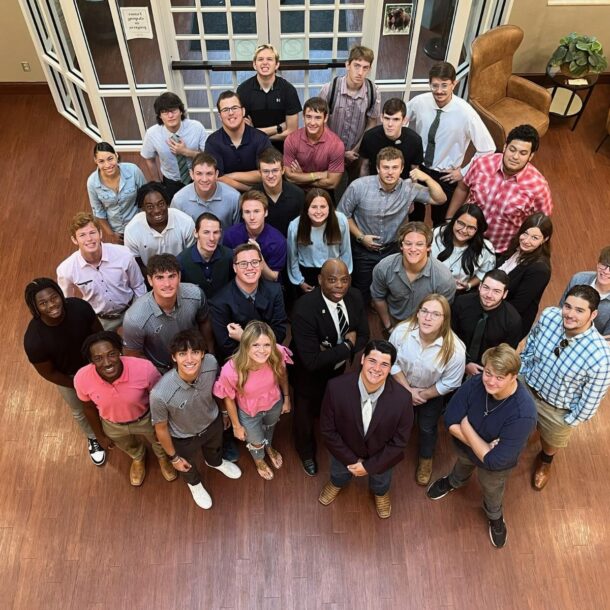

Summary: Examine the value of authentic leadership in a chaotic world. Discover how transformational leaders rise into the fray.
Joe Real was a charismatic and visionary leader. He was a middle-level manager headed to senior leadership. Joe was a great networker and problem solver. Joe often traded help for information about the organization. But those who knew Joe the best knew he could not be trusted. He would tell one manager one thing and another manager a different story. In doing such things, Joe hoped to have managers going after one another enough so that he could leverage his power of information to gain more influence in the organization. Yet, his backstabbing ways came to the forefront as one of the senior managers caught Joe in a lie to another co-worker.
Where are we headed as a country? Former President Donald Trump and 18 co-defendants were arrested this month in Georgia on felony charges concerning the state’s 2020 election subversion cases. President Trump made history as the first former president with a mug shot. The former president has also been indicted four times this year and will face criminal charges. Leaders across the political spectrum concur that the indictments against President Trump carry substantial implications, particularly concerning the public perception of the integrity of the Office of the President and the perceived authenticity of political leadership. Good leadership is critical as the United States President.
Likewise, today’s employees expect managers to model corporate values. Sadly, some managers do not take this invisible code seriously. Hypocrisy is the rule of the day. When I was sitting in my Sunday lecture, the instructor brought home what it meant to be hypocritical when discussing Jesus’ interaction with the leaders of his time, The Pharisees. Jesus openly criticized their actions to his followers in Matthew 23:2: “Therefore, whatever they [Pharisees] tell you to observe, that observe and do but do not do their works. For they speak but do nothing.4 They fasten heavy loads that are hard to carry and lay them on men’s shoulders, but they will not move them with their finger.” Sadly, many workers face less-than-genuine managers who fail to inspire them to more remarkable performance. This article examines the concept of authentic leadership in today’s society.
Global competition is intensifying, compelling leaders to prioritize the interests of shareholders and investors due to financial pressures, often at the expense of their employees. However, organizations require competent, inspired, and exceptional employees who exceed basic performance metrics. Such extraordinary commitment is often withheld when employees perceive their leaders as self-serving and indifferent to their well-being.
In his article “The Foundational Importance of Trust in Management,” Forbes contributing writer Victor Lipman notes the alarming levels of distrust among workers. According to a Gallup survey, 70% of workers are disengaged in the organization. Lipman found several contributing factors to this problem: disingenuous communication, lack of modeling behavior, and financial pressure. Lipman explains, “As a manager, I recognized my employees needed to trust me if I expected them to be fully productive on my watch.” Amid declining trust, exacerbated by widespread layoffs and rising unemployment rates, managers must cultivate sincerity and authenticity within their teams to elicit a caliber of performance that transcends the ordinary.
In today’s complex landscape, organizations must prioritize the cultivation of authentic leadership. Leadership, fundamentally, represents the capacity to wield influence over others. Something special emerges when the adjective of authentic is modified on the word. The adjective authentic conveys “something real or genuine and not counterfeit.” In the case of the Pharisees, they were influencers of their followers. However, the reality was that their type of leadership was not genuine or sincere. Authentic leadership is characterized by leaders’ capacity to cultivate real, transparent relationships with their followers. In adopting this approach, leaders may intentionally make themselves vulnerable, fostering a deeper trust and connection.
Bill George, author of Authentic Leadership, describes authentic leadership as ‘a leadership style consistent with a leader’s personality and core values, honest, ethical and practical.’ Dr. Richard Daft, author of management, further outlines the following key characteristics of authentic leadership: (a) Authentic leaders pursue their purpose with passion; (b) Authentic leaders practice solid values; (c) Authentic leaders lead with their hearts as well as their heads; (d) Authentic leaders establish connected relationships; and Authentic leaders demonstrate self-discipline. With these traits, authentic leadership would be synonymous with an unselfish leadership approach.
In closing, today’s workers want leaders who can inspire them for higher performance. Authentic leadership is as essential in the White House as having a winning football team in the NFL. However, workers are not looking for managers who are not genuine in their relationships with them. This article examined the concept of authentic leadership in today’s society. The analysis reveals a prevailing desire among employees for leaders who are authentic and genuinely invested in their well-being. Amidst a landscape marked by disruptive forces such as layoffs, employees must feel that their management has their best interests at heart. If authentic leadership is applied, organizations will be better able to foster this value. By utilizing authentic leadership in their organizations, managers will be better able to build positive relationships with workers. Start today!
© 2023 by Daryl D. Green
About Dr. Daryl D. Green:
Dr. Daryl D. Green is a business strategist, speaker, and noted author. Dr. Daryl Green provides motivation, guidance, and training for leaders at critical ages and stages of their development. He is the co-author of the book, “Impending Danger: The Federal Handbook for Rethinking Leadership in the 21st Century.”
Dr. Green has been noted and quoted by USA Today, Ebony Magazine, and the Associated Press. Additionally, he is an award-winning college professor, developing new innovative approaches for today’s small businesses. For more information about this article or business assistance, please get in touch with Dr. Green at drdarylgreen@gmail.com or visit www.drdarylgreen.com.

